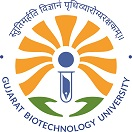
Dr. Gunjan Sharma, PhD
About
I am a molecular mycologist by training. I performed my PhD research at CSIR-Institute of Microbial Technology on the genetic diversity and phylogenetics of plant pathogenic fungi associated with agronomically important tropical hosts, including mango and pepper. I received my PhD degree from Jawaharlal Nehru University, New Delhi. Following that, I worked in the areas of molecular plant pathology and plant-pathogen interaction for my postdoctoral research in India and Israel. I have investigated in detail, the genetic diversity of the fungal pathogens associated with anthracnose disease caused by Colletotrichum species and vascular wilt caused by Fusarium species. I have expertise in the identification and functional characterization of pathogen effector molecules that play a vital role in the disease establishment in a plant host, using in silico approaches. I have worked on some important plant fungal diseases such as anthracnose, powdery mildew and Panama disease.
Background
Education:
- M. Sc. Biotechnology (2008): Banasthali University, India.
- Ph. D. Microbiology (2014): CSIR-Institute of Microbial Technology, Chandigarh and Jawaharlal Nehru University, New Delhi, India.
Honours and Awards
- ARO Postdoctoral Fellowship | Agricultural Research Organization, Israel 12/2019–07/2022.
- Best Poster Award | Science and Engineering Research Board, India and ACS publications 07/2018.
- Dr. D. S. Kothari Postdoctoral Fellowship | University Grants Commission, India [#No.F.42/2006 (BSR)/BL/16-17/0013; not availed] 09/2016.
- SERB National Postdoctoral Fellowship | Department of Science & Technology, India (#PDF/2016/000952/LS) 08/2016–07/2018.
- ARO Postdoctoral Fellowship | Agricultural Research Organization, Israel 11/2014–03/2016.
- Dr. V. C. Vora Best Ph. D. Thesis Award | CSIR-Institute of Microbial Technology, India 02/2015.
- Senior Research Fellowship | Council of Scientific and Industrial Research, India 03/2011–02/2014.
- Junior Research Fellowship | Council of Scientific and Industrial Research, India 02/2009–02/2011.
- National Eligibility Test for Lectureship | University Grants Commission, India 06/2008.
- Biotech Industrial Training Programme | Biotech Consortium of India Limited, India 09/2008–02/2009.
- National Scholarship | Department of Biotechnology, India 07/2006–05/2008.
- Gargi Award | Balika Shiksha Foundation, Government of Rajasthan, India. 07/2000.
Research Group Overview
At GBU, my research group will be engaged to solve the following questions related to plant-fungal interactions using next-generation sequencing and functional genomics approaches:
• How the pathogen is able to invade and colonize its host plants ?
• What are the molecular mechanisms that are associated with pathogen virulence and infection ?
• What are the factors contributing to the host-specificity of a pathogen ?
• What are the defense mechanisms of the host plants towards its pathogen ?
• How we can contribute to address the biotic stress ?
Publications
Selected articles:
1. Vineet Meshram, Meirav Elazar, Marcel Maymon, Gunjan Sharma, Raneen Shawahna, Eduard Belausov, Dana Charuvi, Stanley Freeman (2022) Endophytic Fusarium clavum confers growth and salt tolerance in Cucumis melo. Environmental and Experimental Botany 206:105153.
2. Gunjan Sharma, Marcel Maymon, Vinit Meshram, Stanley Freeman (2022) Characterization of Colletotrichum Isolates from Strawberry and Other Hosts with Reference to Cross-Inoculation Potential. Plants 11:2373.
3. Vineet Meshram, Gunjan Sharma, Marcel Maymon, Alex Protasov, Zvi Mendel, Stanley Freeman (2022) Symbiosis and pathogenicity of Geosmithia and Talaromyces spp. associated with the cypress bark beetles Phloeosinus spp. and their parasitoids. Environmental Microbiology 24:3369-3389.
4. Megha Gupta†, Gunjan Sharma†, Divya Saxena, Roli Budhwar, Madavan Vasudevan, Varsha Gupta, Arunima Gupta, Rashi Gupta & Divya Chandran (2020). Dual RNA-Seq of Medicago truncatula and the pea powdery mildew Erysiphe pisi unveils unique host transcriptional signatures during incompatible and compatible interactions and novel pathogen effector candidates. Genomics 112:2130–2145 (†co-first author).
5. Gunjan Sharma†, Raghavendra Aminedi† , Divya Saxena, Arunima Gupta, Priyajit Banerjee, Dipti Jain & Divya Chandran (2019). Effector mining from the Erysiphe pisi haustorial transcriptome identifies novel candidates involved in pea powdery mildew pathogenesis. Molecular Plant Pathology 20:1506–1522 (Front cover article).
6. Gunjan Sharma, Anil Kumar Pinnaka & Belle Damodara Shenoy (2015) Resolving the Colletotrichum siamense species complex using ApMat marker. Fungal Diversity 71:247–264
7. Gunjan Sharma, Navinder Kumar, Bevan S. Weir, Kevin D. Hyde & Belle Damodara Shenoy (2013). Apmat gene marker can resolve Colletotrichum species: a case study with Mangifera indica. Fungal Diversity 61:117–138

